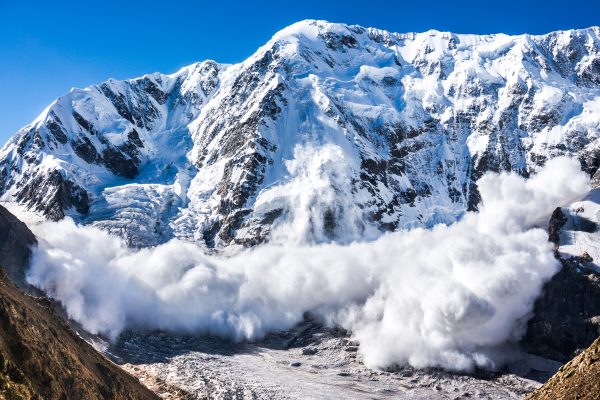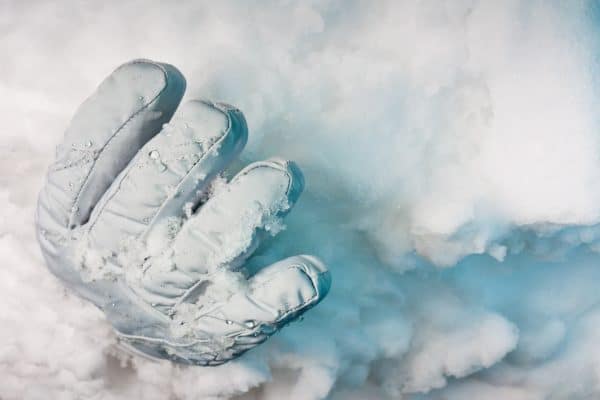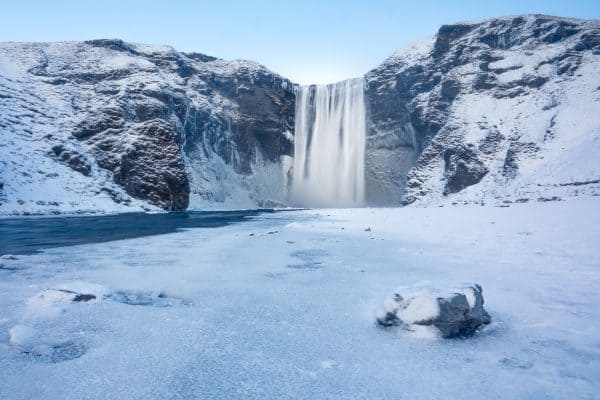Dishwashing soaps can be stored for long periods. But what should you do if you find that the dish soap is frozen? Should you throw it away? Don't despair we’ve got the answers. We asked experts, and here's what they have to say.
Dish soap doesn't freeze completely. It becomes slimy to the touch. The dish soap will feel like playdough but liquifies as it warms. Even after your dish soap has been exposed to freezing temperatures, it doesn't change its cleaning properties. The other ingredients - such as detergent, colors, fragrances, and thickening and stabilizing agents - undergo some changes as well.
This information may be a lot to take in. We have made everything simple so, don't be too concerned. Continue reading as we break it all down for you.
NOTE: WE MAY GET A COMMISSION IF YOU DECIDE TO MAKE A PURCHASE THROUGH THESE LINKS. THERE'S ADDITIONAL NO COST TO YOU. CHECK THE BOTTOM OF THE PAGE FOR MORE INFORMATION.
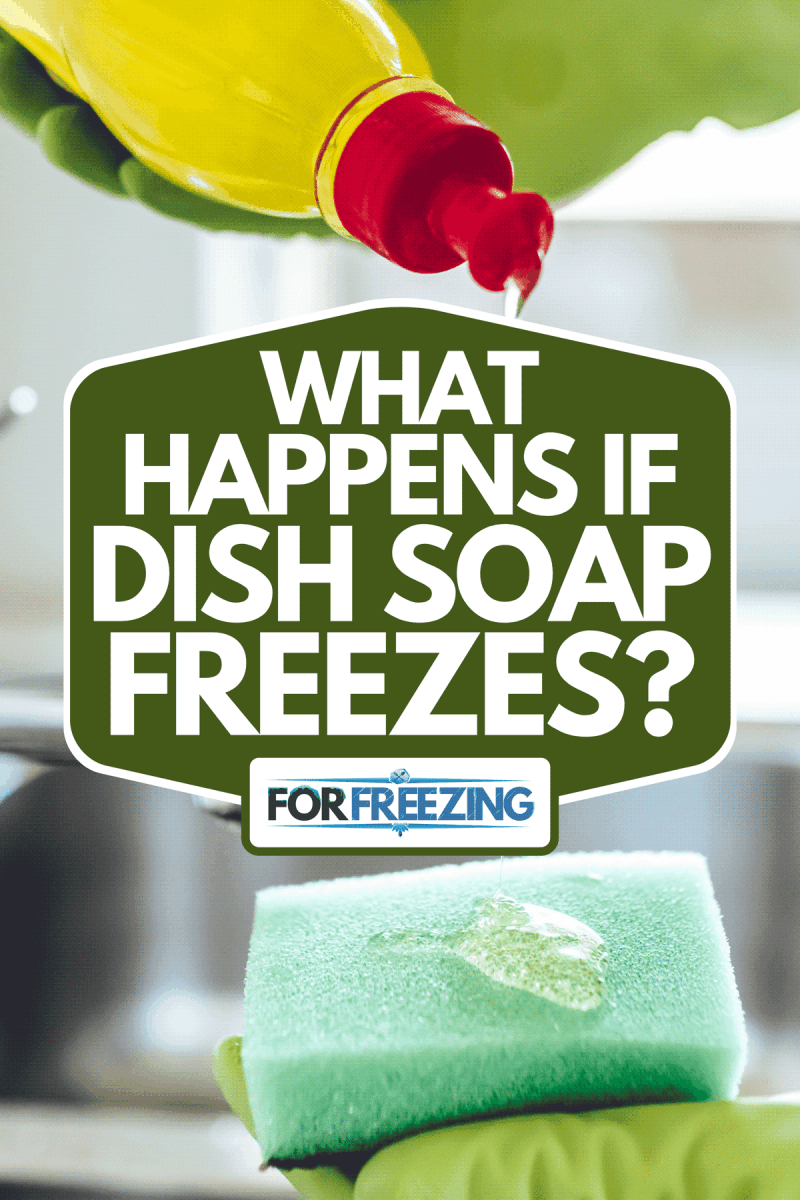
Will All the Ingredients of dish soap freeze?
Water
This is the main ingredient in dishwashing soaps. Whether they are made commercially or at home, water is the dominating ingredient. Water is what makes the dishwashing soap pourable. The amount of water in dish soaps is never more than 95%. This water is what will make the dish soap freeze partially in low temperatures.
If your dish soap has more than 95% water, it'll definitely freeze more. This doesn't mean that the soap has lost its qualities. When the dish soap thaws, it will still lather and foam well. The dishwashing soap does not absorb any moisture from the atmosphere. You may have to wait a little longer for it to thaw.
Detergent
This is the most active ingredient. Detergents are used because they lather well. It doesn't matter whether you do your dishes in very warm or cold water. Detergents don't react with the water minerals to foam soap scum. The surfactants are used by the detergent to clean.
They remove the grease and dirt on the dishes superbly. Detergents are used in dish soaps because they're more soluble. This means that they wash off the crockery and cutlery easily. Soap is not favored as it leaves a residue. This is due to soap's fatty consistency.
When temperatures drop, detergents can freeze and become unstable. Try not to expose your soaps to extreme temperatures. The active components in detergents give a squeaky clean feel to dishes after rinsing them well in plain water. Nobody wants to taste soap on their dishes.
Thickening and stabilizing agents (salts)
Thickening agents are types of salts that help adjust the dish soap consistency without affecting the lathering qualities. During soap making, lye is added gradually to stop the soap from seizing. The quantity added will determine the thickness of the liquid dish soap.
The lye is melted before integrating it into the dish soap mixture. This chemical is from leaching wood ashes. The benefits of lye make it a necessary ingredient in dishwashing soaps. It comes in two forms: sodium hydroxide and potassium hydroxide. Potassium hydroxide, also known as potash, is the form used in making liquid soap.
Lye induces saponification of fats and oils to create soap. If the temperatures are too cold, the lye will solidify the oils and butter in the soap.
Colors and Dyes
The colors and dyes used in dish soaps are usually water-based. Clays and oxides can be used after rubbing them in alcohol. This is to stop them from clamping in your dish soap. The water in these colors and dyes freezes at low temperatures.
Colors and dyes have no effect on the quality of the soap. They don't change how the dish soap lathers. Soap makers and manufacturers use them to entice customers. Dyes and colors are sometimes used as a signature for the brand. Colors and dyes give dishwashing soaps distinctiveness.
Perfumes and Fragrances
Perfumes and fragrances that are added to dish soaps are from essential oils. They are added to the soap at warmer temperatures. Mild scents are added to dish soaps.
In most cases, the scents added are known as 'clean scents' such as lemon and grapefruit. They give that added feel and smell of freshness to the soap. Perfumes and fragrances are oil-based and don't freeze just like the other oily components in the soap.
What is the freezing point of dish soap?
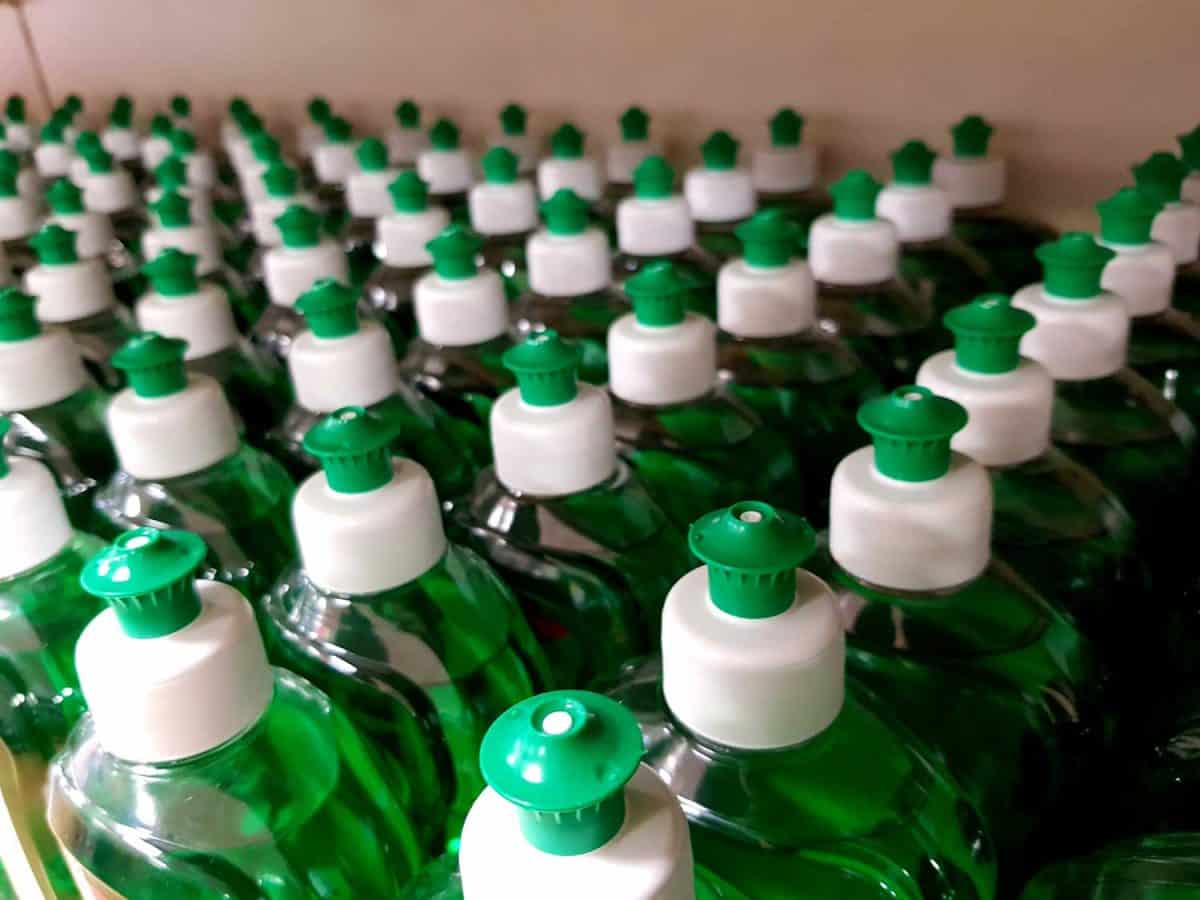
Dish soap does not completely freeze. This is due to the other components in it. The water in it starts to freeze at 32 degrees F. At 32 degrees Fahrenheit, the dish soap turns cloudy.
This is because of the oils that don't freeze. At 12 degrees F, the dishwashing soap starts to freeze. It becomes a slimy goo. It never freezes solid. The difference in freezing points of water and soap makes it impossible for dish soap to become ice. This is the science behind bubbles freezing in winter.
This is advantageous for any dish soap. Dishwashing soaps can be used all year and yield impressive results.
Does Dawn dish soap freeze?
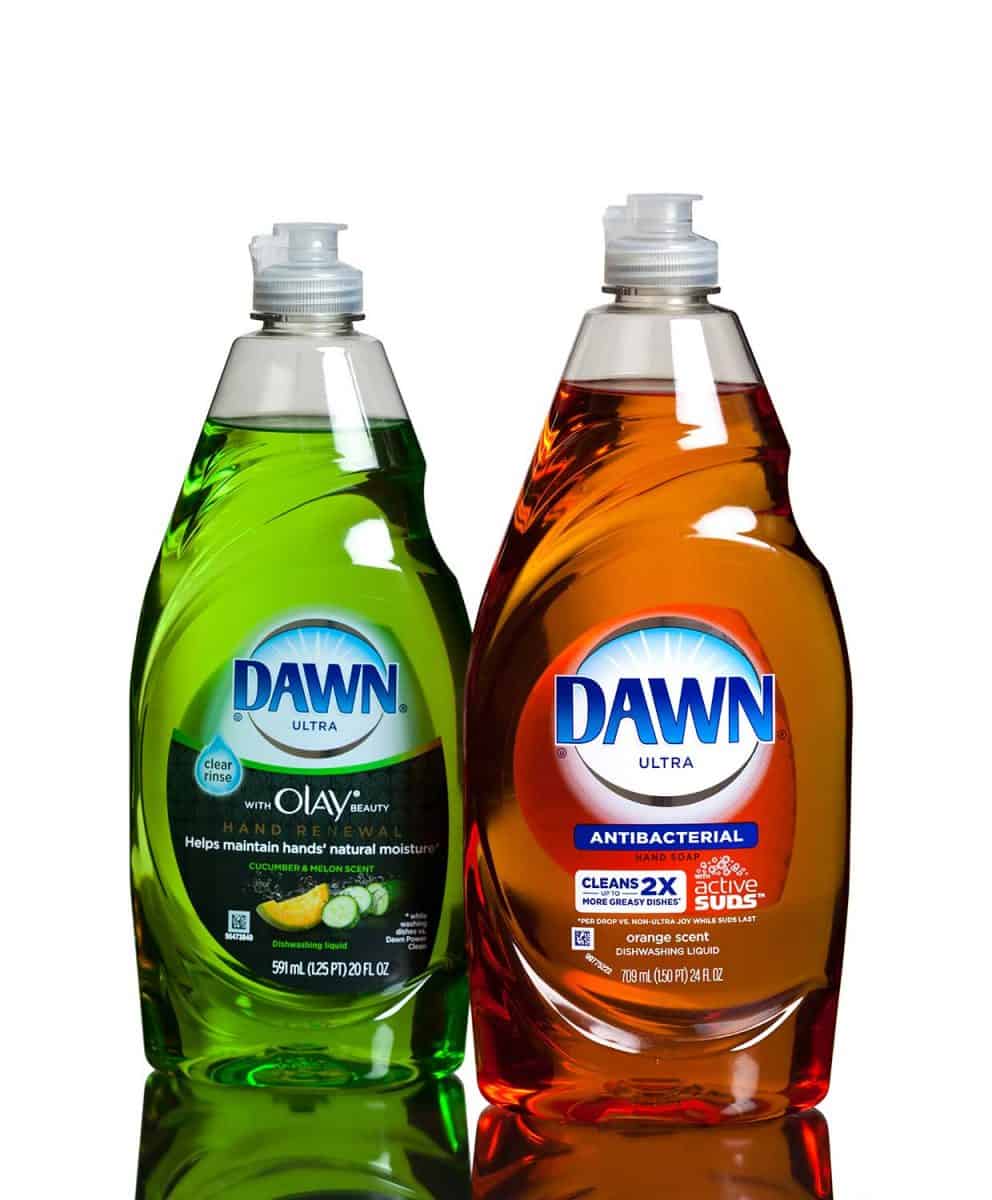
Dawn dish soap doesn't freeze. Just like other dishwashing liquids, it becomes slimy. You can also use Dawn dish soap to clear ice from your porch or driveway. It is an effective way to take care of your walkways.
Mix warm water, rubbing alcohol, and Dawn dish soap and pour on icy surfaces. Snow won't freeze but bubble up and melt away. This works on wooden and concrete surfaces. The mixture can also be used on car or house windows to melt any ice.
As a preventive measure, use the mixture when the outside temperatures begin to drop. You will not have a layer of ice on surfaces that you might have to scrape off.
Does soap lower the freezing point of water?
Yes, it does! Soap does not freeze because of its components. Detergents differ from soaps because they contain chemical compounds. Both dish soaps and bar soaps contain oils and fats which congeal. This means that bar soaps and dish soaps solidify but don't freeze.
Therefore, when dish soaps are added to water, they alter the freezing point of water. They make it significantly lower than it usually is. An interesting experiment to demonstrate this is putting soapy water out on a cold day. The water stays in a liquid form for a longer period.
Is it safe to mix vinegar and Dawn dish soap?
Yes, it is! Vinegar is completely safe for use around the house. It's a very acidic liquid. Its antibacterial properties make it a safe disinfectant. Vinegar mixed with Dawn dish soap is an effective window cleaning liquid.
Vinegar mixed with a few drops of Dawn in 2 cups of water works wonders on mirrors and windows. The concoction leaves the windows and mirrors sparkling clean. This otherwise unpleasant chore becomes bearable if not enjoyable. Any suds often left on windows and mirrors becomes something of the past.
The Bottomline
Experts have clearly shown us that dish soap doesn't completely freeze. We also know what to expect if it's been exposed to extreme temperatures. You can now shop confidently. Freezing temperatures can't affect the quality of your dish soap.

